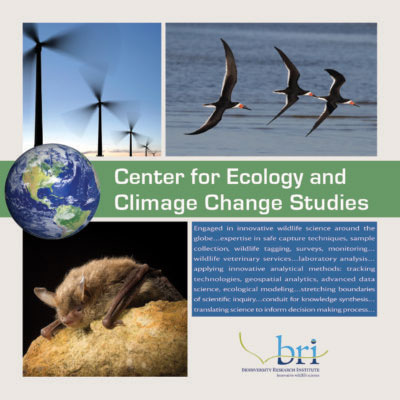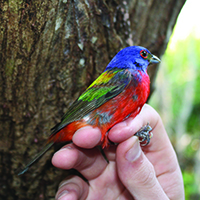Highlighted Songbirds We Study
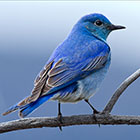
Mountain
Blubird
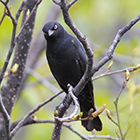
Rusty
Blackbird
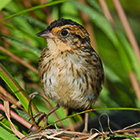
Saltmarsh
Sparrow
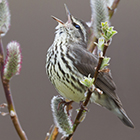
Northern
Waterthrush
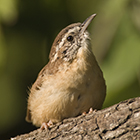
Carolina
Wren
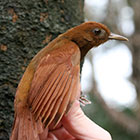
Ruddy
Woodcreeper
Breaking News
Biodiversity Research Institute (BRI) announces the publication of the scientific paper Amazon forests capture high levels of atmospheric mercury pollution from artisanal gold mining in the January 28 issue of Nature Communications. In this new study, an international team of researchers show that illegal gold mining in the Peruvian Amazon is causing exceptionally high levels of atmospheric mercury pollution in the nearby Los Amigos Biological Station.
Migratory songbird species have shown some of the largest declines across the animal kingdom. Complexities of their annual cycle—particularly those related to migration and the use of multiple habitats across continents—make it difficult to determine where a population could be experiencing problems such as habitat loss or shortage of food supplies. Basic information about migratory processes and patterns, combined with songbird natural history, is critical to our understanding of how environmental changes impact these species.
Why Study Songbirds
Many anthropogenic stressors affect songbirds. At BRI, we are working to understand how contaminants, wind power development, climate change, and habitat change impact songbird ecology and demography. BRI is working in various places across New England, the United States, and south into Central and South America to better understand the ecology, movements, and contaminant effects of a variety of songbird species, with an emphasis on neotropical migrants.
Recent Report: Determining Sources of Mercury Contamination within Terrestrial Habitats in the Adirondack Park of New York State
River Point Wildlife Monitoring
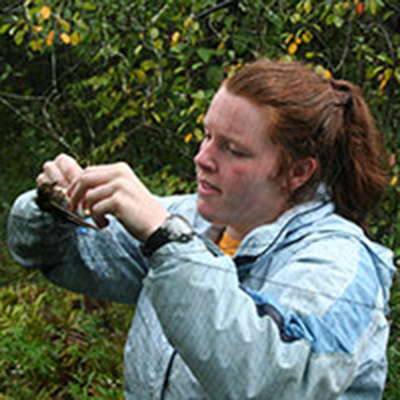
In 2011, BRI began monitoring efforts at the River Point Conservation Area in Falmouth, Maine, with an emphasis on tracking bird populations. Migration monitoring occurs in both spring and fall. In the summer, research efforts focus on the Veery and Tree Swallow.
LEARN MORE about River Point Bird Observatory >
Below is a selection of research projects conducted at the River Point Conservation Area:
- Songbird Migration Monitoring
- Tracking Veery Migration Using Geolocators
- Southern Maine Nestbox Trail
Contaminants Monitoring
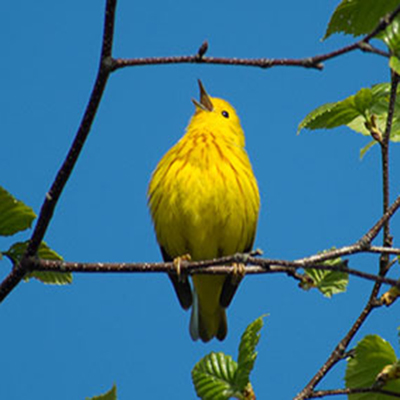
Ever since BRI biologists discovered the threats mercury can pose to songbird populations, we have stressed the need to better understand the exposure of mercury in songbirds across North America south into Central America.
LEARN MORE about Contaminants Monitoring >
Representative projects with a focus on monitoring contaminants in songbirds:
- Monitoring Spatial Gradients and Temporal Trends of Mercury in Songbirds of New York State
- Songbirds: Indicators of Mercury in National Park Ecosystems
- Songbirds: Monitoring Mercury in Invertivores
Movement Studies
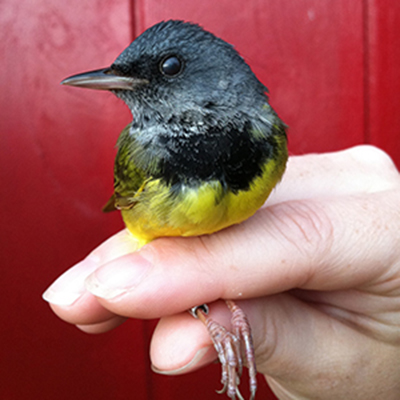
The changing technology of transmitter devices for following wildlife has resulted in new abilities to track smaller birds, like songbirds. BRI is conducting movement studies using geolocator devices in both Maine and Massachusetts. More work is planned in the future.
Representative projects with a focus on movement and distribution of songbirds:
- Great Lakes Migration Monitoring: Documenting bird and bat migration around the Great Lakes to assess risk to migrants from wind power development
- Tracking Wildlife Offshore: Modeling abundance of marine wildlife to promote informed offshore wind power decision making
- Developing novel methods for monitoring songbirds with offshore buoys
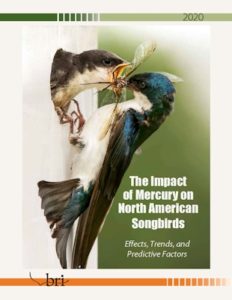
THE IMPACT OF MERCURY ON NORTH AMERICAN SONGBIRDS
To inform policy efforts and advance public understanding, a group of 61 scientists collaborated on producing 15 papers that describe the impacts of mercury on songbirds across the United States and Canada (Cristol and Evers 2020). This publication, The Impact of Mercury on North American Songbirds, highlights the major findings of those studies and collaborative effort.
The 15 scientific papers representing laboratory and field studies are now published in a special issue of the journal Ecotoxicology (October 2020). The papers reflect five general categories of research on mercury in songbirds: (1) effects on health and physiology; (2) temporal trends; (3) landscape variations; (4) bioindicators; and (5) migration.
Photo Credits: Header photo © Karen Perry Images. Portraits: Bluebird © Karen Perry Images; Rusty Blackbird © Milo Burcham; Saltmarsh Sparrow © Garth McElroy; Northern Waterthrush © Ken Archer; Carolina Wren © iStock; Ruddy Woodcreeper © BRI-Dave Buck.

